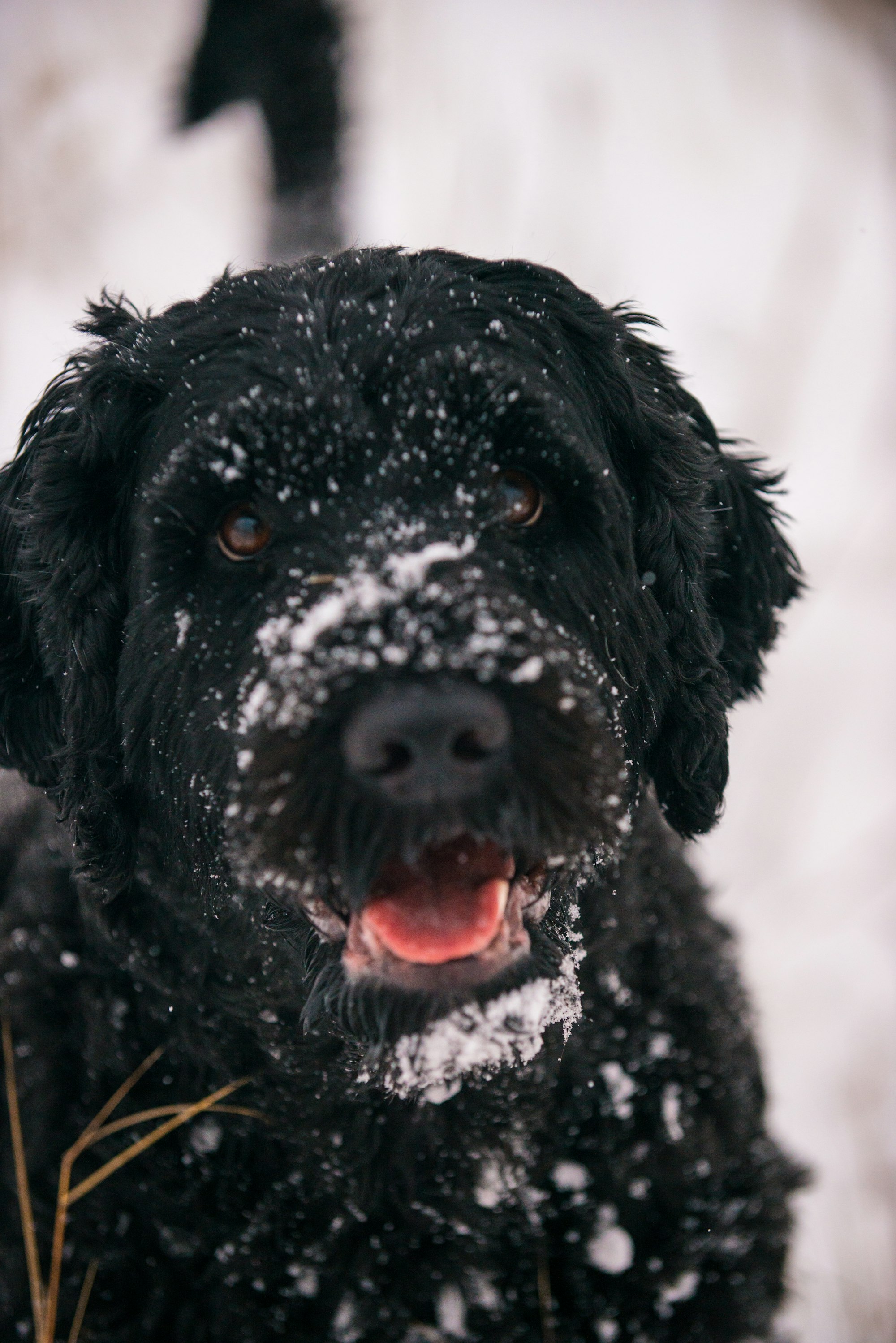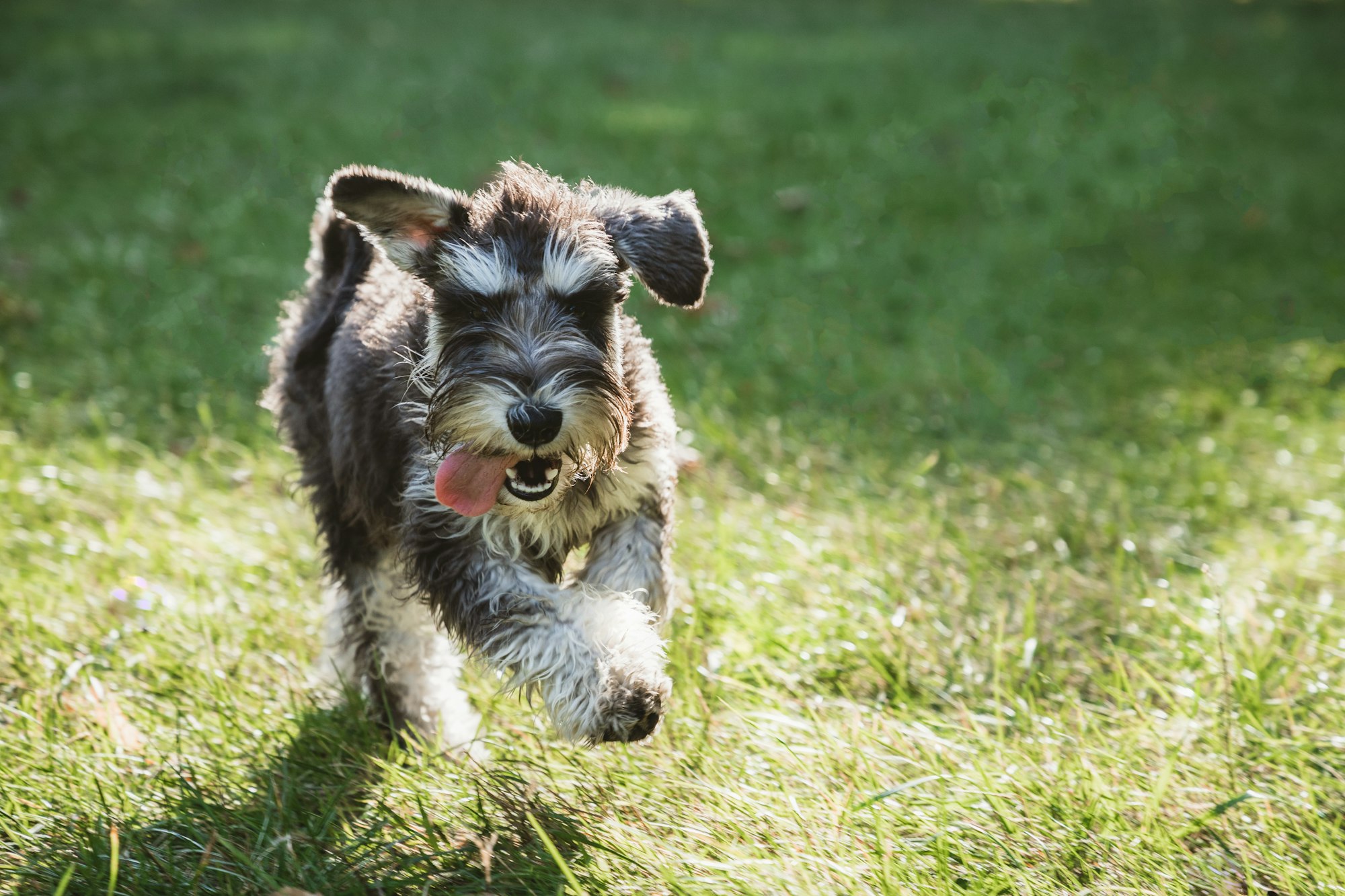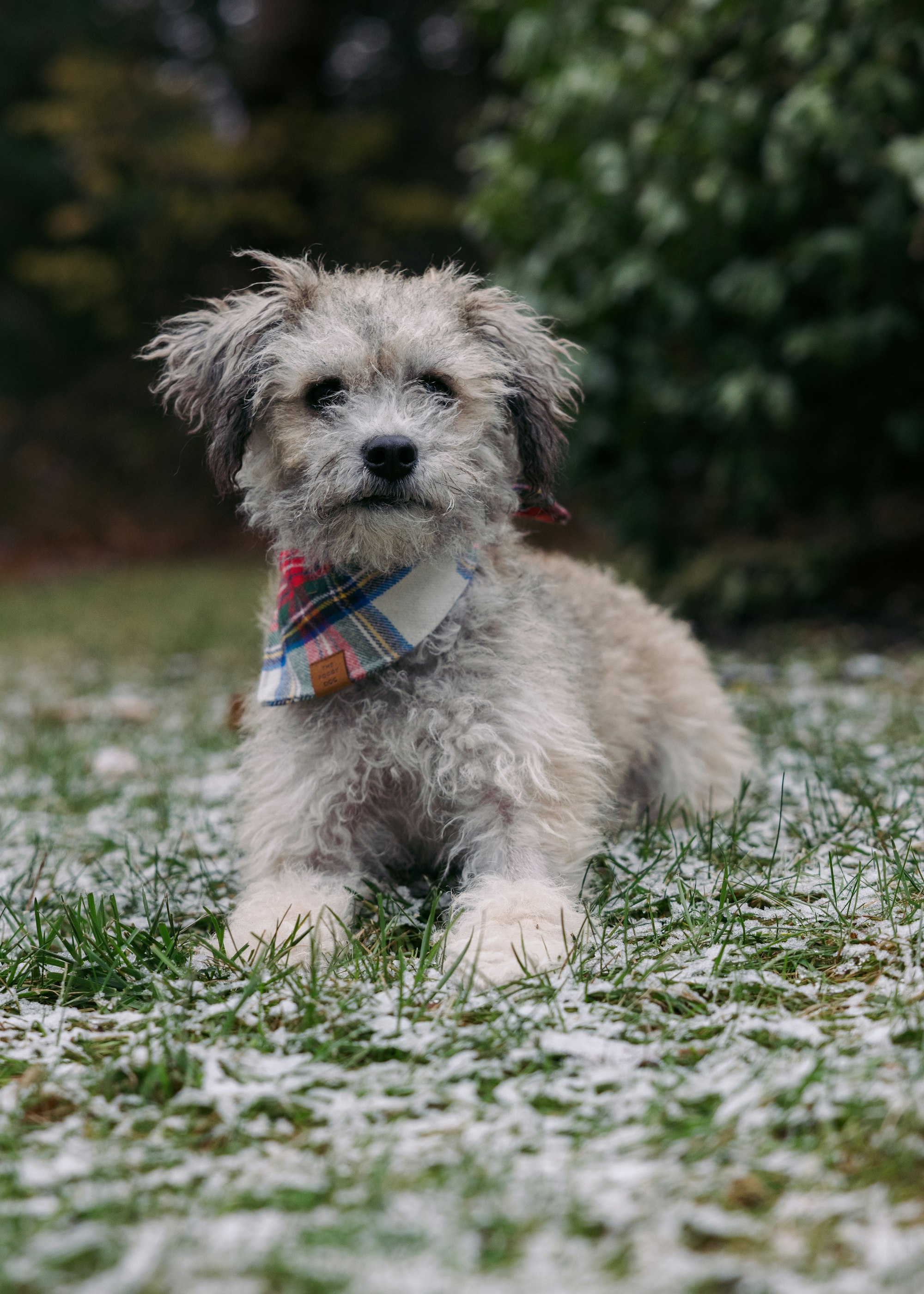There's a burning question on the minds of many prospective dog owners: Are Schnauzers hypoallergenic? With allergies becoming more common, finding a four-legged friend that won't leave you sneezing is vital. Let’s dive deep into the world of Schnauzers, shedding light on their hypoallergenic properties, and help you decide if they're the right companion for you.
The Schnauzer’s Unique Coat: Less Shedding, Fewer Allergies?
Every dog breed has its unique set of characteristics. Schnauzers, known for their distinctive beard and eyebrows, boast a double coat. This consists of a soft undercoat and a wiry topcoat. Unlike some other breeds, the Schnauzer's fur doesn’t shed as frequently.
It brings to mind a similar question I once had about the miniature bull terrier. Their sleek coat, much different from the Schnauzer's, also poses its own set of allergenic challenges. But back to Schnauzers – less shedding means fewer allergens around the house. And fewer allergens? That can lead to fewer allergic reactions for those sensitive to pet dander.

What Makes a Dog Hypoallergenic Anyway?
The term 'hypoallergenic' might sound technical, but it simply means less likely to cause allergies. No dog is 100% hypoallergenic. However, some breeds produce fewer allergens than others. Dander, saliva, and urine are the primary allergens in dogs. Schnauzers, with their unique coat, tend to release less dander into the environment compared to other breeds. But, let’s not kid ourselves. If a Schnauzer licks you, their saliva can still trigger allergies.
Have you ever wondered, can dogs eat cantaloupe? It seems unrelated, but think about this. If a dog eats something, traces can end up in its saliva. So, if a hypoallergenic dog eats cantaloupe and then gives you a big, wet kiss, you might still find yourself sneezing – not from the dog, but from the fruit!
The Three Types of Schnauzers
- Miniature Schnauzer: The smallest of the trio, they're popular in urban settings. Energetic and alert, they have the same hypoallergenic properties as their bigger siblings.
- Standard Schnauzer: The original breed, they're robust and versatile working dogs.
- Giant Schnauzer: As the name suggests, they're the largest. Initially bred for cattle driving, they share similar hypoallergenic traits.
It’s like asking, are huskies wolves? Both share similar characteristics and come from the same family, but they have distinct differences, just like the three types of Schnauzers.
Allergies and Their Quirky Tales
Speaking of unique differences, here's a funny story about a friend of mine. She adores her bichon maltese but found herself sneezing whenever she cuddled with it. On consulting an allergist, she discovered it wasn't the dog causing her allergies, but the pollen it carried from their garden!
Similarly, another friend noticed her dog, not a Schnauzer but a curious canine, had this peculiar habit. Why do dogs bury their body? She wondered. Turns out, dogs often do this to find comfort, cool down, or simply engage in an age-old instinct. But, by burying themselves, they can also pick up allergens from the outdoors, making it essential for owners to be aware and give them a good rub down after their antics.
Feeding Habits and Allergies
One day, while preparing a salad, I pondered, can dogs have cucumbers? A quick search revealed they can! But, feeding habits can influence the allergens a dog might carry. Always ensure your hypoallergenic dog's diet aligns with their needs and doesn't unintentionally introduce allergens.
Understanding Your Allergy: Schnauzer-Specific Considerations
So you've settled on a Schnauzer, but your allergies are still a concern. How do you navigate this complex landscape? Much like choosing the right food for your dog (like wondering can dogs have cucumbers), choosing the right breed involves some investigation.
Grooming Habits and Their Role in Allergies
Schnauzers, with their unique double coat, require regular grooming to keep their hypoallergenic properties in check. Neglected grooming can lead to matting and trapped dander, which might lead to more allergic reactions.
Remember the story about the bichon Maltese and the pollen issue? Regular grooming can minimize such problems. Brushing, bathing, and general maintenance of your Schnauzer's coat can keep those allergens at bay.
Living with Schnauzers: Real-life Experiences
Let's talk about Mary, a real Schnauzer owner with mild pet allergies. Her story might resonate with many of you. She always loved dogs but had to keep her distance due to sneezing and itchy eyes. A friend suggested looking into hypoallergenic dogs, specifically Schnauzers.
After much research and consulting with her allergist, she decided to adopt a Miniature Schnauzer. Her experience? A generally allergy-free life with her new best friend! Regular grooming and keeping a clean living space made living with a Schnauzer a joy.
Now, if you think about unique dog characteristics, like why do dogs bury their body, Mary's Schnauzer had a habit of hiding toys. She soon realized that these buried toys were also collecting allergens, so she learned to wash them frequently.

Comparing Schnauzers with Other Breeds
Now, you might be wondering how Schnauzers stack up against other breeds, like the question that often comes up: are huskies wolves? Or maybe you've even considered another breed, like the miniature bull terrier. Each breed has its unique characteristics, and Schnauzers are no different.
Compared to more heavily shedding breeds, Schnauzers may indeed be a better option for allergy sufferers. However, individual reactions can vary, so it's always wise to spend time with a Schnauzer to see how you react.
A Few Tips for Prospective Schnauzer Owners with Allergies
- Consult an Allergist: Before making a decision, speak with a healthcare provider specializing in allergies.
- Spend Time with Schnauzers: Spend time with the breed to gauge your reaction. Visit breeders, shelters, or friends who own one.
- Consider Your Living Space: Make sure your home is conducive to keeping allergens at bay. Hardwood floors, regular cleaning, and air purifiers can all help.
- Understand Grooming Needs: Regular grooming is essential. Either learn to do it yourself or find a reputable groomer who understands hypoallergenic breeds.
Choosing the Right Environment for Your Schnauzer
Living with a Schnauzer is not just about understanding the breed's hypoallergenic qualities but also ensuring their environment is tailored to benefit both the dog and the owner, especially those with allergies.
Indoor Living and Air Quality
Just as we pondered questions like can dogs eat cantaloupe, understanding indoor air quality is crucial. A Schnauzer, though hypoallergenic, will still release some allergens. Investing in a high-quality air purifier can help filter out pet dander, pollen, and other allergens. Regularly replacing filters and maintaining the unit is essential for its efficiency.
Moreover, vacuuming with a cleaner equipped with a HEPA filter ensures that the minute dander particles, which might have settled into your carpet or upholstery, are effectively captured. Doing this at least twice a week is advisable.
The Schnauzer’s Outdoor Adventures
You might not be trying to answer the age-old question of are huskies wolves, but knowing your Schnauzer’s outdoor habits is just as vital. When your Schnauzer ventures outside, they can pick up pollen, dust, and other allergens on their coat. Simple habits, like wiping their paws and giving their coat a quick brush after an outdoor session, can significantly reduce the amount of these allergens they bring inside.
Remember our little detour about why do dogs bury their bodies? If your Schnauzer enjoys digging or rolling around in the grass, a quick bath or rinse might be in order, especially during allergy season. It not only reduces the allergens but also keeps your dog’s coat in pristine condition.
Diet, Health, and Allergies
Ensuring your Schnauzer is on a healthy diet not only benefits them but can also indirectly help with allergies. A dog on a balanced diet with all essential nutrients will generally have healthier skin and shed less.
As we've explored peculiar topics like can dogs have cucumbers, remember that certain foods can improve skin health. Omega-3 fatty acids, for instance, can be a beneficial addition to your Schnauzer’s diet, promoting healthier skin and a shinier coat.
Fostering a Strong Bond: Beyond the Allergies
At the end of the day, while hypoallergenic characteristics are crucial, building a bond with your Schnauzer transcends it all. These intelligent, spirited, and loyal dogs have a way of embedding themselves into the hearts of their owners.
Engaging in activities together, be it training sessions, playful games, or just lounging around on a lazy afternoon, strengthens the bond. And who knows, in one of these interactive sessions, your Schnauzer might surprise you with a quirky behavior, reminding you of the whimsical question, why do dogs bury their bodies?
Indoor Living and Air Quality
Just as we pondered questions like can dogs eat cantaloupe, the concept of monitoring our Schnauzer's activity even indoors becomes paramount. The Fi dog collar comes into play here. Beyond being just a collar, it's a state-of-the-art dog activity monitor. While keeping our indoor air quality pristine, it's essential to also keep tabs on how active our Schnauzer is indoors. An overly active dog might shed more, and the Fi collar can provide insights into their activity levels, helping you balance playtime and rest.
The Schnauzer’s Outdoor Adventures
While the age-old question of huskies wolves might be a fun mystery to solve, knowing where our Schnauzer is at all times isn't something we'd want to be uncertain about. As they venture outside, the Fi dog collar acts as a GPS tracker, ensuring that your furry friend's location is always accessible via the Fi app on your smartphone. Besides tracking their whereabouts, it’s also a brilliant tool to monitor their exercise levels. And remember, a well-exercised Schnauzer is less likely to bring outdoor allergens inside as they're not rolling around or digging as much.
Diet, Health, and Allergies
Balancing your Schnauzer’s diet based on their activity is essential. As we touched on topics like can dogs have cucumbers, the question arises: how much exercise is your dog getting to balance out their diet? The Fi dog collar can provide a solution here too. By tracking your dog's activity levels, it offers insights that can help adjust their dietary needs accordingly. A Schnauzer that’s burning more calories outdoors might need a more substantial diet, and vice versa.

Fostering a Strong Bond: Beyond the Allergies
While understanding hypoallergenic characteristics is essential, so is bonding with your Schnauzer. Remember our playful question about why do dogs bury their bodies? Imagine setting up a treasure hunt for your Schnauzer and using the Fi dog collar to track their movement as they uncover hidden treats around your yard. It becomes an engaging game for both the owner and the dog, fostering a unique bond while also monitoring their health and activity.
Conclusion:
In unraveling the hypoallergenic nature of Schnauzers, it's evident that while no dog is entirely allergen-free, with regular grooming and environmental care, Schnauzers come close to the mark. Enhancing this journey of understanding and cohabitation, tools like the Fi dog collar provide invaluable insights into their health, activity, and location.
As we navigate the nuances of dog ownership, from dietary queries like Can dogs eat cantaloupe to behavioral wonders of why dogs bury their bodies, integrating advanced technology and informed practices ensures a harmonious and rewarding relationship with our Schnauzers, making the challenges of allergies a manageable aspect of this enriching partnership.